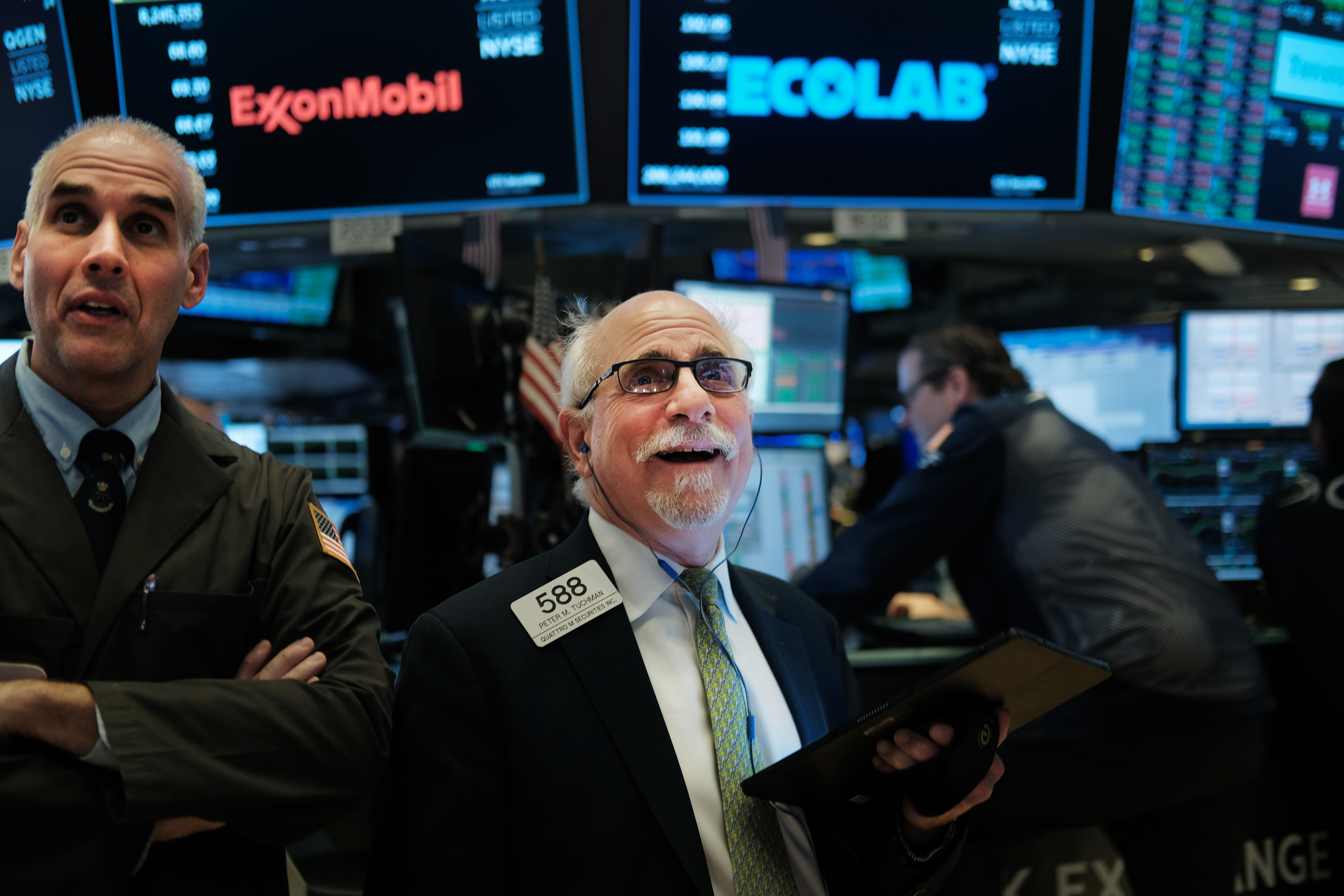An unexpected decade of prosperity
Why investors don't want this decade to end

A free daily email with the biggest news stories of the day – and the best features from TheWeek.com
You are now subscribed
Your newsletter sign-up was successful
The smartest insight and analysis, from all perspectives, rounded up from around the web:
Hold the champagne: Investors don't want this decade to end, said Lu Wang at Bloomberg Businessweek. "Stocks in the S&P 500 have returned 249 percent in the past 10 years." That's not just better than the historical average — it's happened without the stomach-churning dips the stock market has delivered in other periods. Not every day was smooth sailing. "There was the May 2010 flash crash, Europe's sovereign debt crisis in 2011 and 2012, and China's currency devaluation in 2015." But ultimately the 2010s turned out be "the first decade without a bear market" — the market never fell more than 20 percent from its peak. Even through a trade war and global recession jitters, "magically, the bull market has endured."
In the near term, economists believe that "the more than decade-old bull market still has room to run," said Martha White at NBC News. Many of the experts who in the spring predicted a recession for 2020 have changed their tune, and last month's robust jobs report has made economists much more optimistic. Most analysts now forecast one of three outcomes, said Paul Davidson at USA Today. Optimists envision the manufacturing sector springing back to life as the trade war fades. Pessimists note that consumer confidence and the share of Americans who say they are "planning to buy homes, cars, and appliances" have fallen. A partial trade agreement with China still leaves "a fog of uncertainty," but the prevailing view is that the economy will keep growing in 2020 — but modestly.
The Week
Escape your echo chamber. Get the facts behind the news, plus analysis from multiple perspectives.

Sign up for The Week's Free Newsletters
From our morning news briefing to a weekly Good News Newsletter, get the best of The Week delivered directly to your inbox.
From our morning news briefing to a weekly Good News Newsletter, get the best of The Week delivered directly to your inbox.
The next decade, though, is a different matter, said Nir Kaissar at Bloomberg. "The surprising rally from the rubble of the 2008 financial crisis has touched off a fierce debate about what fueled the resurgence." There are a lot of theories: Did low interest rates "goose the market"? Were earnings boosted by stock buybacks? Was it hypergrowth for "a handful" of tech companies? The simplest explanation is just that U.S. companies had a very profitable decade. But profits are more volatile than most investors think, and "it's unlikely that the last decade's earnings growth will spill into the next." Investors should "grit their teeth for a low-return decade," said Robin Wigglesworth at the Financial Times. Interest rates are almost certain to rise, along with corporate tax rates. More Baby Boomers are retiring, "sapping economies of their vim." Protectionist policies will remain popular. The "realistic assumption" is that the party is ending.
Then again, economists predicted that the last decade would be a long period of stagnation, said Greg Ip in The Wall Street Journal — and they "got the decade all wrong." Even as the 2010s progressed, experts kept underestimating the recovery. Most economists expected unemployment "to bottom out around 5 percent." Instead, it's now at a 50-year low, and "likely headed lower." The expansion of the past 10 years is "the longest since records begin in the mid-1800s." Whether it marks a transformation in the economy or just a phase in the economic cycle is something we won't know until another decade has passed.
A free daily email with the biggest news stories of the day – and the best features from TheWeek.com
-
 How the FCC’s ‘equal time’ rule works
How the FCC’s ‘equal time’ rule worksIn the Spotlight The law is at the heart of the Colbert-CBS conflict
-
 What is the endgame in the DHS shutdown?
What is the endgame in the DHS shutdown?Today’s Big Question Democrats want to rein in ICE’s immigration crackdown
-
 ‘Poor time management isn’t just an inconvenience’
‘Poor time management isn’t just an inconvenience’Instant Opinion Opinion, comment and editorials of the day
-
 The pros and cons of noncompete agreements
The pros and cons of noncompete agreementsThe Explainer The FTC wants to ban companies from binding their employees with noncompete agreements. Who would this benefit, and who would it hurt?
-
 What experts are saying about the economy's surprise contraction
What experts are saying about the economy's surprise contractionThe Explainer The sharpest opinions on the debate from around the web
-
 The death of cities was greatly exaggerated
The death of cities was greatly exaggeratedThe Explainer Why the pandemic predictions about urban flight were wrong
-
 The housing crisis is here
The housing crisis is hereThe Explainer As the pandemic takes its toll, renters face eviction even as buyers are bidding higher
-
 How to be an ally to marginalized coworkers
How to be an ally to marginalized coworkersThe Explainer Show up for your colleagues by showing that you see them and their struggles
-
 What the stock market knows
What the stock market knowsThe Explainer Publicly traded companies are going to wallop small businesses
-
 Can the government save small businesses?
Can the government save small businesses?The Explainer Many are fighting for a fair share of the coronavirus rescue package
-
 How the oil crash could turn into a much bigger economic shock
How the oil crash could turn into a much bigger economic shockThe Explainer This could be a huge problem for the entire economy